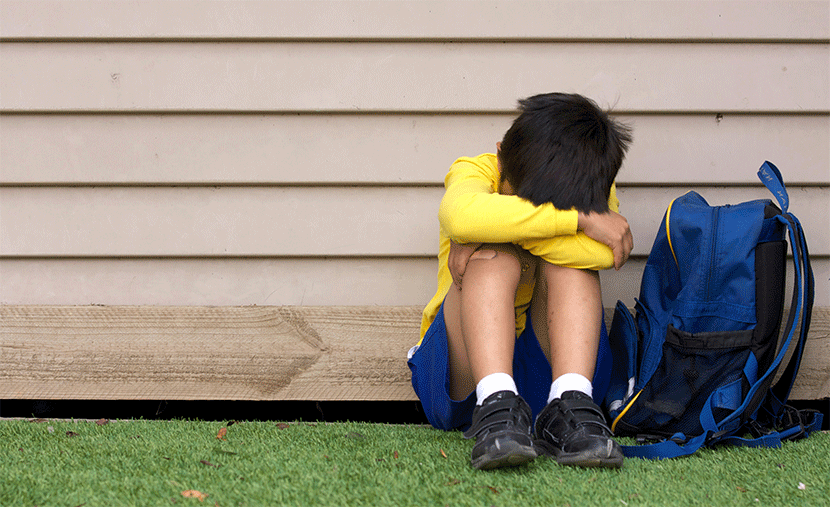Blog
How to get your kids back into the classroom with a smile – after lockdown
A Q&A on school refusal with Dr Peter Kyriakoulis
The pandemic has taken its toll on everyone – even our smallest members of society. So it’s understandable if your child isn’t over the moon about heading back to school. Whether they’re just used to being at home or worried about getting sick, kids who refuse to return are likely suffering some form of anxiety. In this article, Dr Peter Kyriakoulis answers all your questions on school refusal – plus tips on how to get your child back into the classroom with a smile.
Q: What is school refusal?
A: School refusal is exactly what the name suggests: kids protesting going to school. They’ll often get very upset as a result of some form of emotional distress, like anxiety or fear.
It’s not just limited to blatant ‘refusal’ though. Your child might agree to go to school, but end up coming home early or spending long periods in the sick bay.
Q: Why does school refusal happen?
A: Kids might refuse to go to school for many reasons. But some of the more common ones include separation anxiety, social problems and learning difficulties.
However, off the back of a pandemic where children were home-schooled, we can probably narrow down the cause to any of the following:
- Concerns for health
- Exposure to media reports on catching and spreading disease
- Witnessing parental anxiety surrounding COVID-19
- Getting used to extended time away from school
- Becoming accustomed to a more relaxed approach to schooling (or a preference for learning from home)
- Enjoying being in the comfort of their own home (plus having more free time to engage in their favourite activities, like video games)
Q: How do I know if my child is refusing school?
A: It’ll be reasonably obvious if your child doesn’t want to go to school.
We’ve all seen the cliché movie scene where a child wakes up suspiciously ‘ill’, too unwell to go to school for the day. But if that behaviour becomes a daily occurrence (or their sickness improves when you let them stay home), it might be a cause for concern.
You might also witness tantrums, crying episodes, behavioural issues and conflict with other family members. Your child might beg or plead not to go – and complain of headaches, tiredness or an upset stomach beforehand. They may also exhibit panic or physiological symptoms of anxiety.
As a parent, your judgement is best. If you think something’s up with your child, it probably is.
Q: Can I just let them stay at home? It might be safer there anyway…
A: Like adults, children are averse to negative feelings. And just like us, they’ll try to avoid them if possible.
So, their solution to avoiding the coronavirus, separation anxiety or the schooltime routine is to stay at home. But the more they avoid it, the harder it will be for them to go back. And in the meantime, they risk falling behind in their academic, social and emotional development.
That’s why it’s best to address school refusal as early as possible.
Q: How do I get my child to go back to school?
A: There are many techniques you can use to help support your child’s return to school – before their avoidance becomes habitual.
Begin by trying to get to the bottom of what’s really worrying them (and their first answer may not be the truth). The key is to pinpoint the issue as early as possible so that you can address it.
Other strategies to explore include:
- Teaching your child some relaxation and diaphragmatic breathing exercises
- Making the time at home seem less appealing by limiting screen time or focusing more on homework
- Developing a plan with the school (they can often support your child if they know what’s going on)
Q: Nothing seems to work, should I seek professional help?
A: Introducing your child to a psychologist can help them address their worries and develop strategies to overcome them.
A child psychologist with direct experience in this realm is well placed to:
- Help identify what underlying issues are at play
- Determine the most effective treatments (such as CBT or ACT)
- Give you strategies and practical tips for supporting your child in their return to school (including the right language to use and habits to encourage)
And remember that school refusal can be hard on the whole family. So if anyone else in your household is suffering as a result, it’s important to address that too.
If your child is exhibiting signs of school refusal, we can help. You don’t have to battle it on your own. To book an appointment, call us on 1300 995 636.

